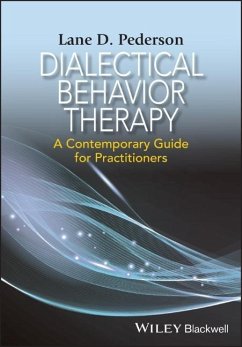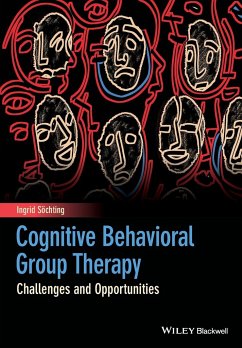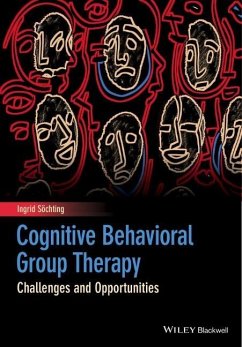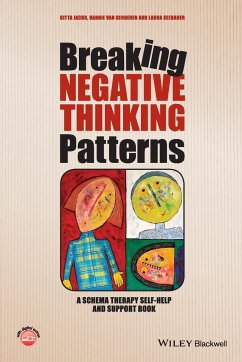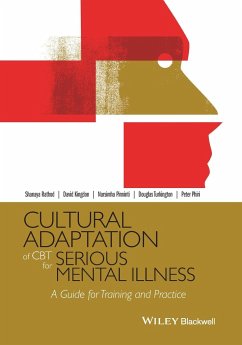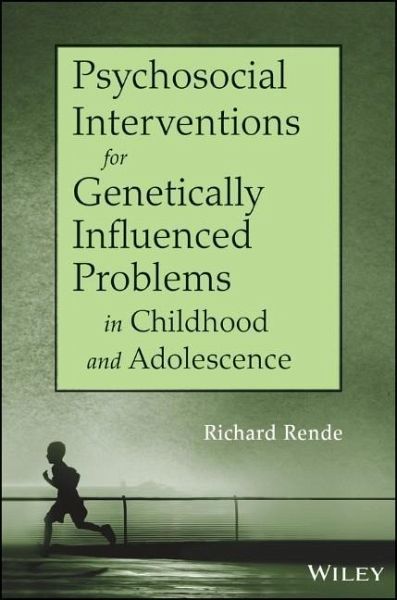
Psychosocial Interventions for Genetically Influenced Problems in Childhood and Adolescence
Versandkostenfrei!
Versandfertig in über 4 Wochen
52,99 €
inkl. MwSt.
Weitere Ausgaben:

PAYBACK Punkte
26 °P sammeln!
Taking into account the best knowledge to date on the interplay of biology and environment, this book guides mental health practitioners' use of evidence-based psychosocial interventions with children and adolescents. With essential guidance on treating an array of childhood and adolescent problems, mental health practitioners, psychologists, counselors, social workers, psychiatrists, and psychiatric nurses who work with children and adolescents will find information on which psychosocial interventions are supported by current gene research. This book explains the multiple ways in which intervention may operate, given genetic risk factors.
How to weigh genetic factors while choosing the best psychosocial interventions
Psychosocial Interventions for Genetically Influenced Problems in Childhood and Adolescence explores empirically supported psychosocial interventions in light of our current understanding of the genome. It considers how interventions may be modified and enhanced as the products of genomic research continue to expand - and why they offer the most promise for making substantial gains in treatment and prevention.
Providing a clear, accessible assessment of our current knowledge, both of the genome and evidence based treatments, Psychosocial Interventions for Genetically Influenced Problems in Childhood and Adolescence provides practical advice to clinicians,policy makers, and others invested in treating young people who present with a variety of conditions including anxiety, depression, ADHD, autism, substance abuse, and dyslexia. Rende discusses the current understanding of genetic etiology of psychopathology, and explores the support, or lack thereof, for various modes of treatment in light of new genomic knowledge. The overall premise is that our advances in genetics will be put to best therapeutic use by fueling translational psychosocial interventions.
Key points raised include:
The need for treating children suffering today, rather than waiting for a biological "magic bullet"
Discussion of how empirically-supported interventions mesh with genetic vulnerabilities
Ways in which interventions may change as genetic research continues
Psychosocial Interventions for Genetically Influenced Problems in Childhood and Adolescence explores empirically supported psychosocial interventions in light of our current understanding of the genome. It considers how interventions may be modified and enhanced as the products of genomic research continue to expand - and why they offer the most promise for making substantial gains in treatment and prevention.
Providing a clear, accessible assessment of our current knowledge, both of the genome and evidence based treatments, Psychosocial Interventions for Genetically Influenced Problems in Childhood and Adolescence provides practical advice to clinicians,policy makers, and others invested in treating young people who present with a variety of conditions including anxiety, depression, ADHD, autism, substance abuse, and dyslexia. Rende discusses the current understanding of genetic etiology of psychopathology, and explores the support, or lack thereof, for various modes of treatment in light of new genomic knowledge. The overall premise is that our advances in genetics will be put to best therapeutic use by fueling translational psychosocial interventions.
Key points raised include:
The need for treating children suffering today, rather than waiting for a biological "magic bullet"
Discussion of how empirically-supported interventions mesh with genetic vulnerabilities
Ways in which interventions may change as genetic research continues








